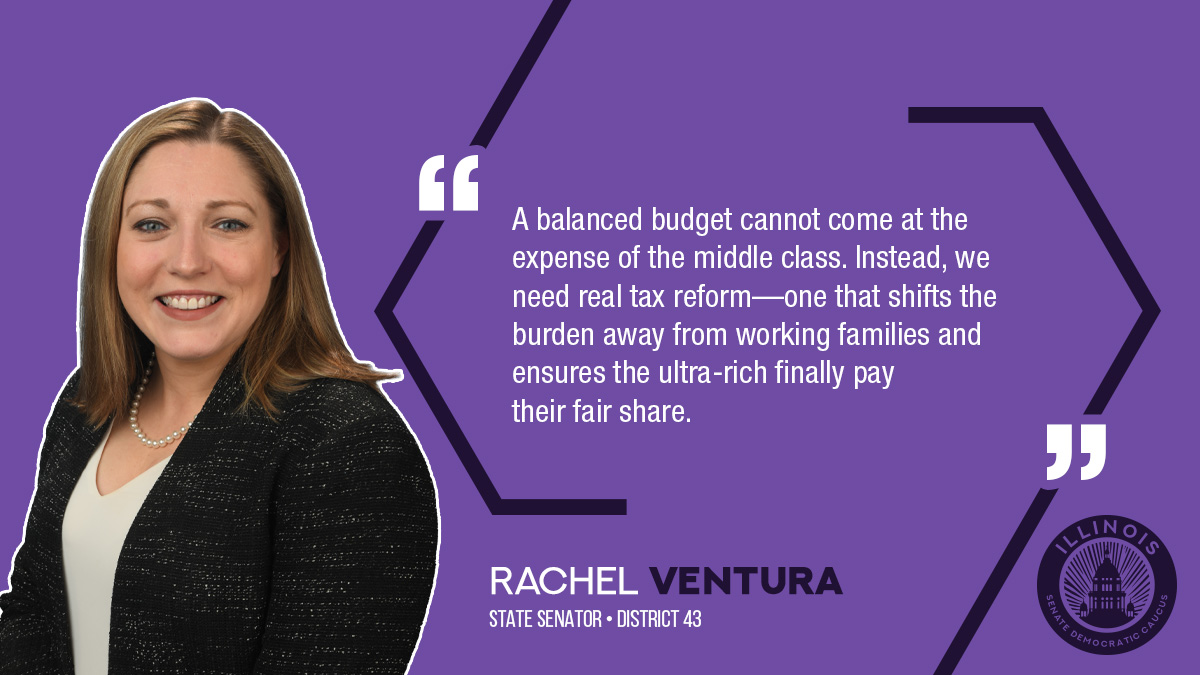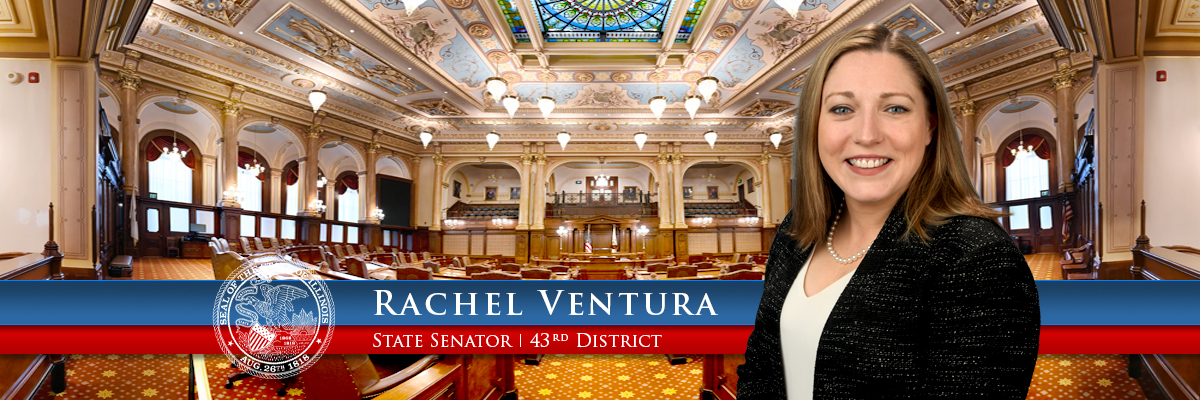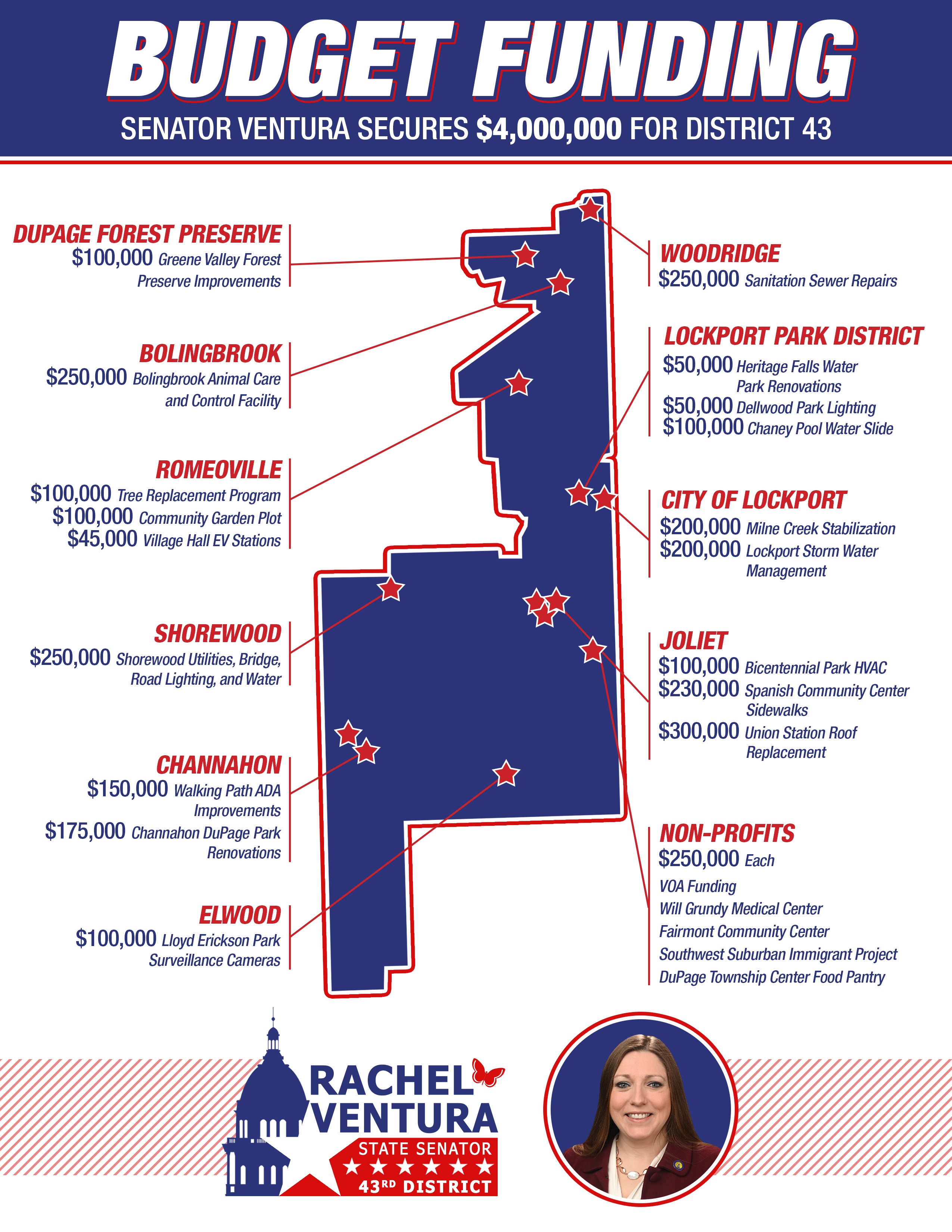- Details
 SPRINGFIELD – In response to Governor JB Pritzker’s budget address today, State Senator Rachel Ventura (D-Joliet) issued the following statement:
SPRINGFIELD – In response to Governor JB Pritzker’s budget address today, State Senator Rachel Ventura (D-Joliet) issued the following statement:
“As the Trump Administration continues to sow chaos through the federal government, it is our responsibility as a state to act as a stabilizing force and champion of everyday people and communities. Our residents deserve to thrive, not merely survive.
“I am committed to passing a budget that prioritizes the working class and secures funding for working families in an era of rising costs and devastating federal funding cuts. I was gratified to hear that the governor’s budget proposal includes a significant investment in affordable housing projects and repairs to crumbling health care infrastructure. These are commendable measures to address the want of resources for too many working residents in our state.
- Details

Ensuring resources are available for local communities to preserve their natural resources plays a huge role in environmental equity and access.
That’s why this year’s budget includes $50 million for the Open Space Land Acquisition and Development grants that will help local governments enhance community park projects—on top of an additional investment in implementing health and equity zones to confront the social and environmental factors that contribute to systemic inequity.
To support increased access to nutritional foods, this year’s budget will send $30 million in new funding to the Department of Agriculture for the Local Food Purchasing Cooperative Agreement Program. The program supports local, regional and underserved farmers and producers through food purchasing agreements.
Further, the budget includes $10 million to start a Clean Energy Career and Technical Education pilot initiative to assist high schools with developing curriculum and programming that supports EV manufacturing technical education, and additional funding for EV and household energy efficiency rebates.
- Details

This is a budget that invests in economic development, job training, business attraction and more to bring and create new jobs here in Illinois. The budget allocates $10 million for grants to minority entrepreneurs and another $10 million to help smaller communities offer incentives to attract job creators—encouraging diverse businesses to expand throughout the state.
Whether it is a young person finding their path after high school or someone looking to make a career change, Illinois is making robust investments to build a highly skilled and diverse workforce ready for the industries of the future. Increased investments to develop advanced manufacturing, EV technology and data center workforce training will further build the pipeline of qualified workers in key industries.
It also includes $10 million toward a new, multi-year initiative to develop and implement a one-stop business portal to assist people looking to start new businesses or relocate businesses to Illinois, fostering entrepreneurship and connecting them with business development resources.
The budget takes the diverse needs of the business community into account and takes steps to make it easier to do business in Illinois. By moving to phase out the franchise tax, allocating new funding to revitalize commercial corridors and providing an additional $40 million in forgivable loans to social equity cannabis licensees, this budget lays the foundation for a competitive business environment in every industry and community across the state.
Page 1 of 2






